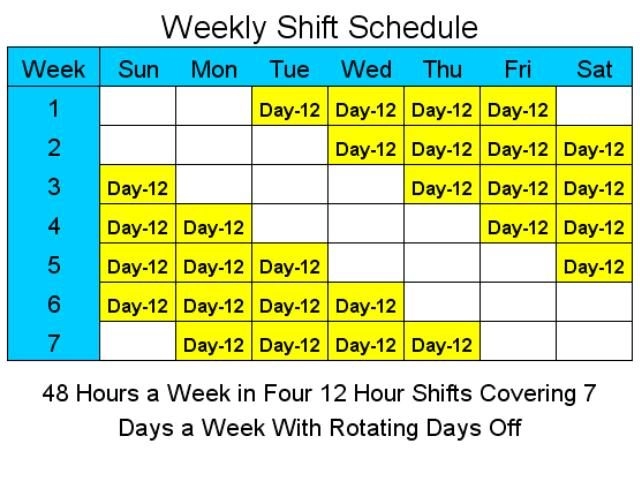ALTERNATIVE WORK WEEK LAW FOR HEALTHCARE WORKERS
California Wage Orders allow some employers to avoid paying overtime if employees are on an alternative work week. Different industries are subject to different wage orders. The Employment Lawyers Group has particular expertise in alternative work week agreements (or lack thereof) under Wage Order 5 that applies to workers in healthcare. The focus on this article is on the exceptions to normal overtime law for healthcare workers. Employees in other industries who are supposed to be working under an alternative work week agreement are encouraged to call to find out if they might have a case.
CALL (818) 783-7300 IF YOU BELIEVE YOUR EMPLOYER HAS NOT PROPERLY PAID YOU
Healthcare facilities may avoid overtime for work between eight hours and one minute (8:01) and eleven hours and fifty-nine minutes (11:59) of a shift if there is a valid alternative work week agreement (AWS) and schedule. The problem is a lot of employers do not have valid AWS agreements, and the employees do not actually work the number of hours allegedly voted on.

WHEN ALTERNATIVE WORK WEEK AGREEMENTS ARE NOT VALID FOR HEALTHCARE WORKERS
There are detailed rules about voting, on alternative work week agreements, and reporting the vote. The results of any election for an alternative work week schedule shall be reported by an employer to the Division of Labor Standards Enforcement (DLSE) within 30 days after the results are final, California Labor Code § 511e. Many times, the vote is not actually reported to the DLSE. The purpose of the vote, and the work unit effected, is so workers in that unit know the terms of the alternative work week agreement. Moreover, they should be able to verify the truth of such an agreement especially years later if they were not part of the vote.
We have encountered hospitals who mislead workers into what the vote is about. Employers must provide paperwork about these votes and elections. If the paperwork fails to describe what is being voted on and how the employee’s normal overtime rights will change, there is a problem.
Wage Order 5 allows two alternative work week schedules for healthcare workers. One is for 4 10 hour shifts. The other is for 3 12 hour shifts. 4 10s or 3 12s are supposed to be regularly occurring events in regularly scheduled work weeks. The existence of an on-call shift might in itself violate this requirement if it adds an additional shift every week. Generally, not working 3 12s or 4 10s (whichever was voted on) may also lead to a court determination the AWS does not apply. For example, if the employee commonly works significantly more than 12 hour shifts, is exposed to short shifts, fewer or more than 3 days a week, and any combination thereof it does not appear they are actually working the agreed to 3 12s per week.
Wage Order 5 only allows healthcare workers to be paid according to an AWS if they do not work more than 13 hours in a 24-hour period. Frequent shifts of more than 12 hours should defeat the AWS.
Frequent shifts of less than the specified number of hours for the shift (10 or 12) should also defeat the existence of a valid alternative work week exemption to overtime law.
Alternative work week agreements are supposed to pay employees overtime if they are sent home before their 10th hour if they work 4 10s, or before their 12 hour if they work 3 12s, and they have worked more than 8 hours. One issue in litigation is that employers try to claim employees voluntarily left early. The burden is on the employer to establish this. If the employee has not signed paperwork saying they voluntarily left early, the employee may be owed overtime.
“An employer may not engage in a subterfuge or artifice designed to evade the overtime laws’ ”’ or scheduling practices ‘“designed primarily to evade overtime compensation.” (Seymore v. Metson Marine, Inc., supra, 194 Cal.App.4th at p. 370, Huntington Memorial Hospital v. Superior Court (2005) 131 Cal.App.4th 893, 910. It is therefore very important that employees actually work the requirements of the AWS agreements. They should be regularly working 3 12s or 4 10s. They should not be deemed to have waived overtime if their shifts ended early.

REGULAR DAILY OVERTIME IS OWED IF AN ALTERNATIVE WORK WEEK AGREEMENT IS INVALIDATED
If it is determined the Alternative Work Week rules voted on and supplied to the DLSE were not the actual conditions under which the employee worked, the employee is owed wages. What are the consequences of an invalid Alternative work week schedule? Daily overtime should be paid for time over 8 hours and less than 12 hours.
Our office tried a case for a large number of nurses involving an invalid AWS. We have since taken other cases against healthcare organizations (generally hospitals) for these violations. Many employers seem to be falsely claiming there is an AWS, not paying daily overtime. Sometimes we have found an AWS does not exist at all. Other times, the AWS did not exist when the employer first claimed it did. Exceptions to normal overtime laws are not to be liberally granted. The issue of invalid alternative work week schedules causing employees not to be paid overtime is serious. Not only are these employees owed considerable wages, but the entire purpose behind the AWS is not there. Employees are not free to take other jobs, or sign up with registries because they work extremely long hours at the employer with the AWS, beyond what was voted on. Nor are they able to have 3 or 4 days off per week to do something else.
Very few law firms have litigated these issues in California. We do not believe any law firm has the actual trial and research experience our firm has in this issue as it pertains to healthcare. Please consider using Karl Gerber to represent you on a case about an invalid alternative work week schedule. Call (818) 783-7300.

